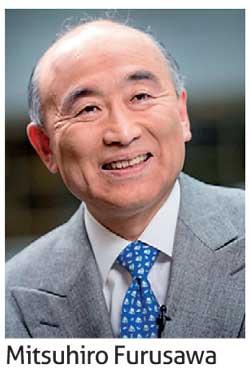04 Nov 2019 - {{hitsCtrl.values.hits}}
Sri Lanka will receive US$ 164 million from the International Monetary Fund (IMF), as the island nation successfully completed the sixth review of its economic performance under the programme supported by an extended arrangement under the Extended Fund Facility (EFF).
The IMF Executive Board has given Sri Lanka a waiver in reviewing Sri Lanka’s economic performance as Sri Lanka failed to observe the performance criterion on primary balance for the end-June 2019 due to Easter attacks in April.

The total disbursement under the arrangement has now reached US$ 1.31 billion.
Sri Lanka entered into an arrangement with the IMF for a US$ 1.5 billion EFF on June 3, 2016. Following Easter attacks, the IMF Executive Board approved an extension of the arrangement by one additional year until June 2, 2020, rephasing of remaining disbursements.
Sri Lanka’s economic growth is expected to pick up to 3.5 percent in 2020 from 2.7 percent in 2019 with gradual recovery in tourist arrivals and related activities following the Easter Sunday terrorist attacks.
“Sustaining fiscal policy discipline remains critical to strengthen resilience and support growth, as important downside risks remain, amid heightened external and domestic uncertainty,” IMF Deputy Managing Director and Acting Chair of the Board, Mitsuhiro Furusawa, said.
“Sustained efforts to mobilize revenues will be needed in 2020 to place public debt on a downward path, while preserving space for critical social and investment spending,” he added. Furusawa also said the new fiscal rule framework and the establishment of an independent public debt management agency over the medium term will help Sri Lanka to anchor public debt sustainability. “Advancing SOE reforms in the electricity sector will also be critical to reduce fiscal risks.”
Furusawa also urged the Central Bank to maintain a data-dependent monetary policy and said the new Central Bank Act will be a milestone reform towards the adoption of flexible inflation targeting.
“Efforts to build reserves should be sustained to protect the economy against shocks, allowing for exchange rate flexibility in the event of market pressures.”
Meanwhile, acknowledging the progress Sri Lanka has made in strengthening its anti-money laundering / combating the finance of terrorism (AML/CFT) regime Furusawa said harmonizing regulation and supervision of financial institutions, strengthening the macroprudential policy framework, and upgrading the contingency framework will help safeguard the country’s financial stability.
“Further progress in the structural reform agenda is essential to bolster competitiveness and achieve stronger and inclusive growth.
“Efforts should focus on liberalizing trade, by gradually removing para tariffs and addressing their revenue impact, strengthening the governance and anti corruption framework, promoting women’s economic empowerment, building climate resilience and enhancing social protection,” he added.
09 Jan 2025 20 minute ago
09 Jan 2025 2 hours ago
09 Jan 2025 2 hours ago
09 Jan 2025 2 hours ago
09 Jan 2025 3 hours ago